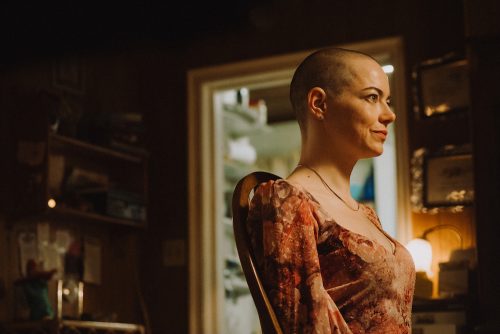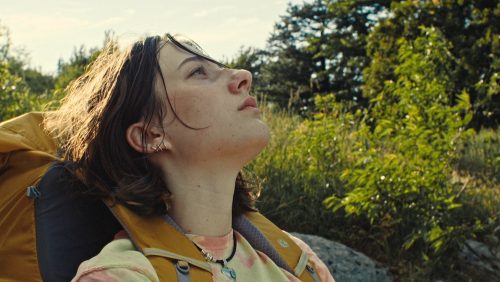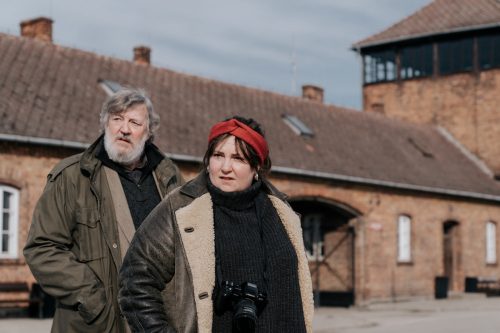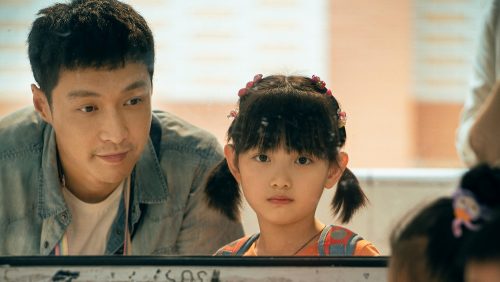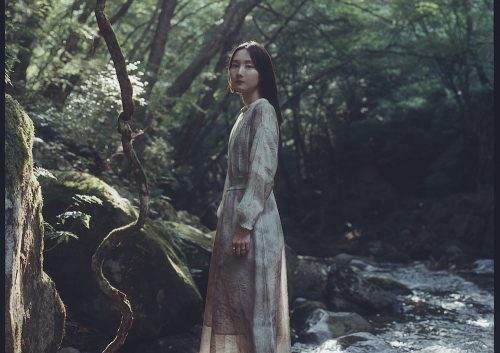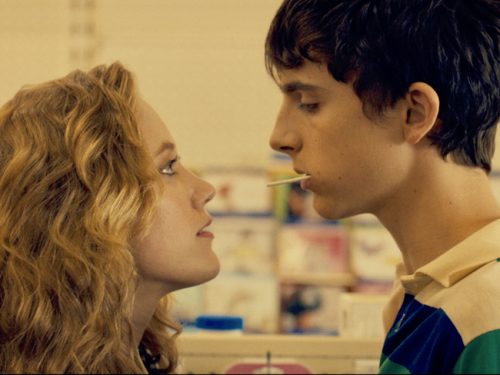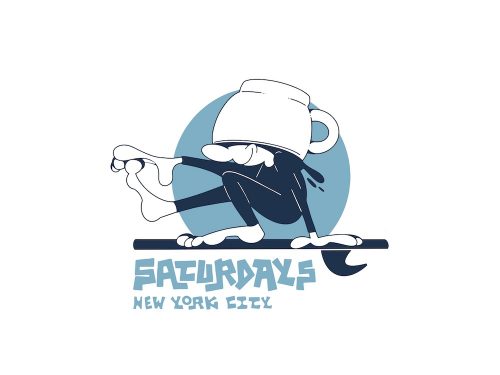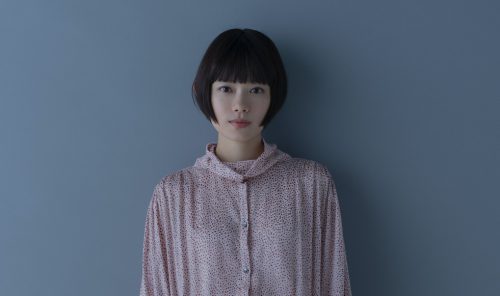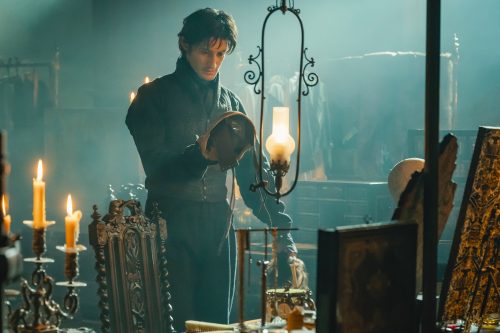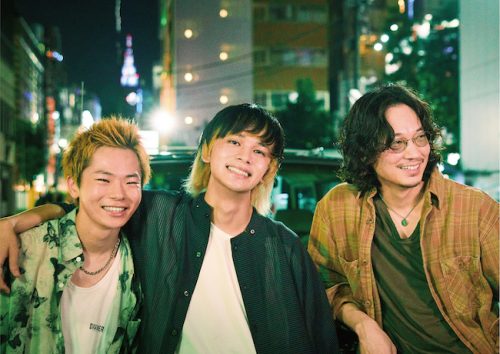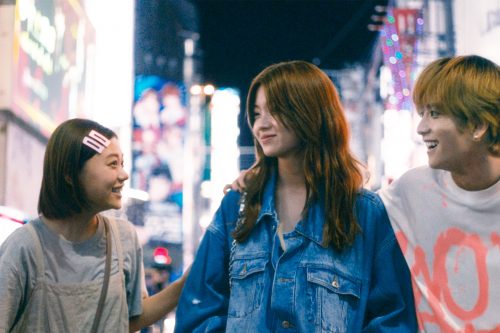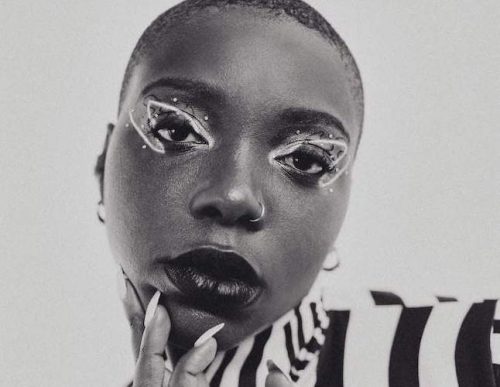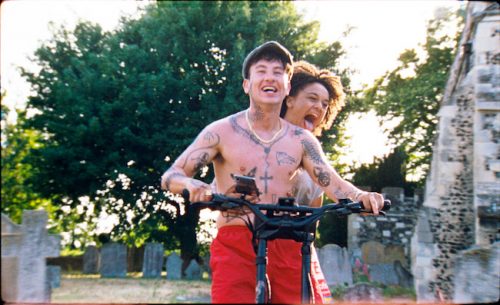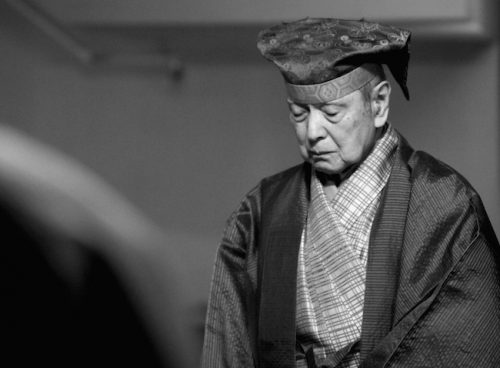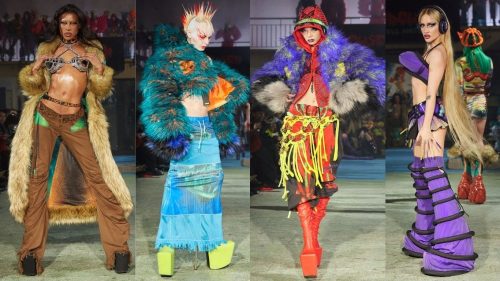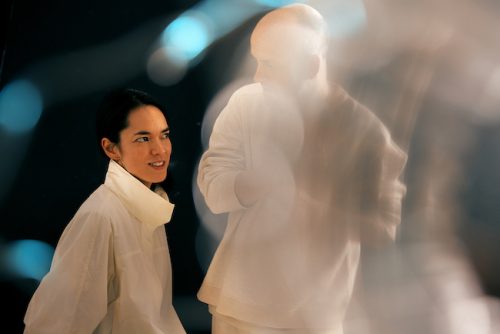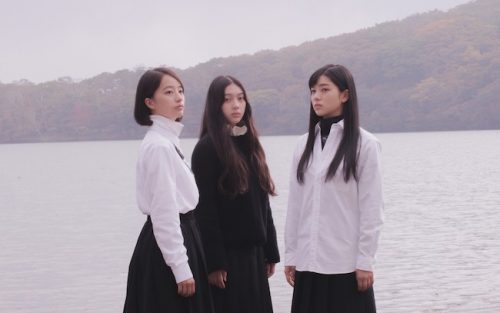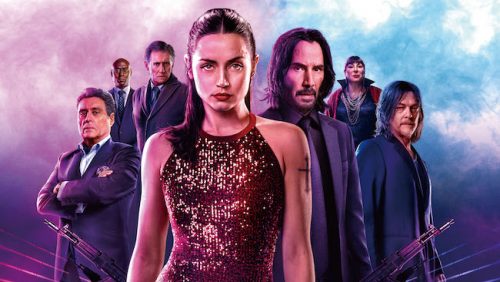
ーーWhat was the origin of this story?
Elijah Bynum: I went to college in Massachusetts and during my time there I met two guys very similar to Daniel Middleton and Hunter Strawberry in the movie one was more soft-spoken and shy, the boy next door type. He had started a weed-dealing business with another guy, a swaggering alpha guy with a real darkness in him, someone you would never expect to be in the same room as his business partner. They were an unlikely pair, selling weed around the dorms at school. Quickly it became five dorms and then ten and suddenly everybody on campus was getting their weed from them. They started selling off campus and before they knew it they were in over their heads. Business was growing at a faster rate than either could imagine, and they were driving to Upstate New York and Pennsylvania. I watched it all as an innocent by stander, heard about the stories passed along. Everyone was talking about them, everyone knew what they were up to. The seams of their relationship started coming apart, they began distrusting one another, and it all ended in a melodramatic fashion that I won’t get into here. They both dropped out of school overnight and disappeared. There was something tragic about their story, this unlikely friendship, their quick rise and dramatic fall—it all played out in one year. Years later, when I was looking for a story to tell, their story kept coming back to me.
ーーWhy did you decide to set it in 1991?
Elijah Bynum: I was four years old in 1991 so I don’t remember much about that year at all, but I wanted the story to take place in the past and feel like a fuzzy memory, as though it was driven by emotional logic rather than factual logic. This is very much an emotional coming of age story. When we look back at our memories, we’re not remembering factually what happened, we’re remembering how it made us feel, which for me made for a better cinematic experience than trying to ground the story in a realist way I thought it would play better as a small town fairytale or legend. I also wanted to tap into one of the last eras before the internet and cell phones, when small towns felt more isolated and legends could blossom like old folklore. I started writing well before the ‘80s-revival craze, before Stranger Things and Ready Player One, and I wasn’t interested in the ‘80s. But I wanted to set the story in a period that felt familiar enough that everyone now could remember it, plus the early ‘90s haven’t been revis- ited much yet. I learned that Hurricane Bob happened in 1991 on Cape Cod, so that’s where I centered the story.
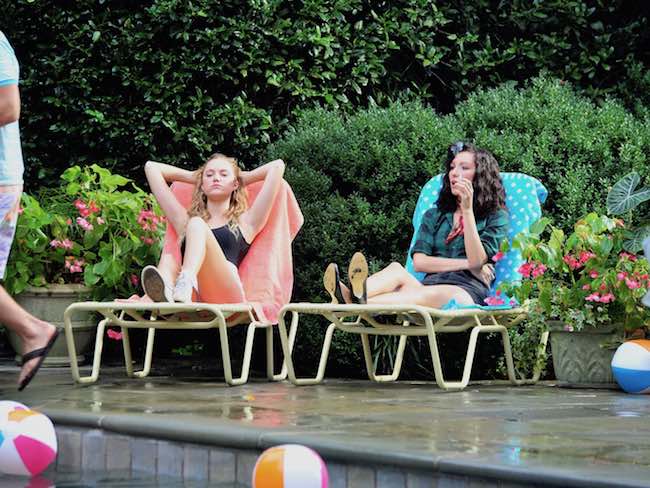
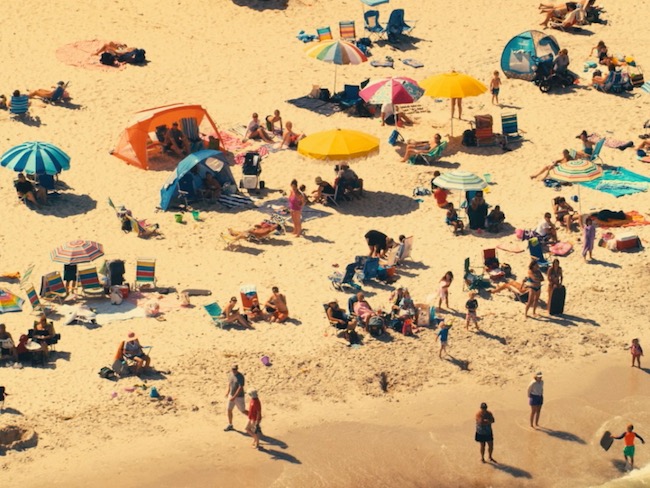
ーーWhat made Cape Cod especially cinematic in your eyes?
Elijah Bynum: I remember visiting the Cape as a child with my parents and I had these vague, foggy memories of understanding that we were only visitors there, coming in and having our summer fun, laying on the beach, but eventually leaving. I remembered thinking how some people on the Cape didn’t get to leave this wasn’t vacation for them, it was their life. Those people didn’t particularly have a lot of money. They didn’t get to just pick up and leave whenever they wanted. In a way their job was to make sure the visitors were happy, then they were to sit back, grind out the winter, and wait for the visitors to return again. Here’s this idyllic summer wonderland that has a darker, sadder story underneath. When I started writing my story, this notion of the townies and the summer crowd kept bubbling up in my head. How the local kids learn where they t in to the social structure at a very young age. The characters of Hunter and McKayla are certainly aware of what social class they fit into—they’re townies, the people who are never going to leave, second-class citizens in their own home.
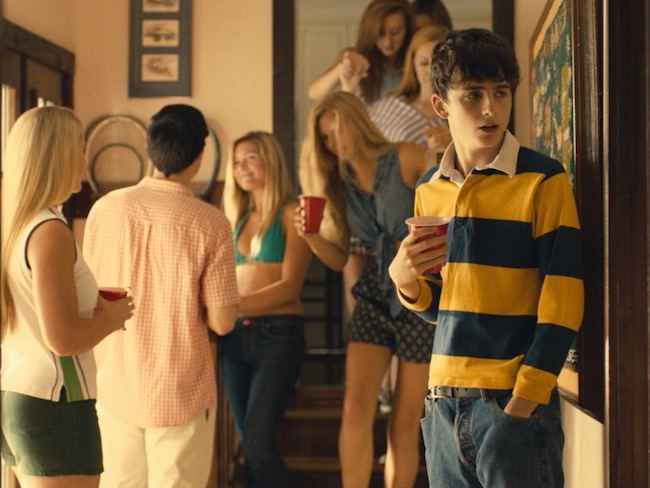
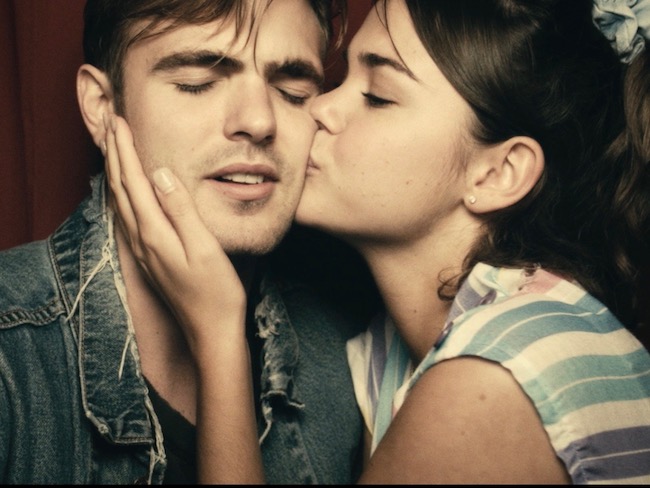
ーーHow would you describe your protagonist Daniel Middleton?
Elijah Bynum: He’s an outsider, a loner, the boy next door who’s innocent and sincerity is charming but he isn’t necessarily aware that he’s charming. He’s completely average, or so he thinks. He certainly hasn’t found what he’s good at yet. And he’s lost, searching for an identity after losing his father, searching for something that makes him feel important, special and worthwhile. He’s going off to college in the fall so there’s a transition taking place; he’s blossoming from a teenager into a young adult and he’s trying to find out who he is. Some of us at that age are lucky enough to find things that help us identify, whether it’s a group of friends, or a special talent like music or athletics—things you can gravitate towards and find self-identification through. Daniel doesn’t have this, but he’s looking for something in this new environment he’s been sent to for the summer. And he finds trouble.
ーーDescribe the character of Hunter Strawberry and the dynamic between Hunter and Daniel that comes across so strongly in this movie.
Elijah Bynum: Anyone who has lived in a small town knows some version of Hunter Strawberry, he’s the cool kid, the guy all the other guys want to be like, the guy all the girls want to be with, that classic American archetype who’s effortlessly cool. There’s something mysterious about him, you never see him with his parents, you don’t know where he lives, or how he got that new Camaro. But he’s the first kid in town to smoke cigarettes and get a tattoo. He lives by his own rules, etc. What I’ve learned from my own experiences with these types of kids is that once you get to know them, you come to discover that their lives are never as pretty as it seems from the outside. There’s a reason why they’re guarded and mysterious, because they’re usually hiding something. And they’re lonelier than you can imagine. Guys like Hunter often peak early on in life, there aren’t many places for them to go. As cool and dreamy as they seem, there’s something tragic inside them, which Daniel doesn’t realize at first. He sees the exterior of Hunter, who becomes a Tyler Durden to him everything he wishes he could be. Part of what I wanted to explore in the movie is Daniel’s disappointment when he realizes Hunter isn’t everything he thought he was.
ーーYou give Hunter and McKayla a legendary aura, there’s a touch of James Dean and A Place in the Sun in these kids. Talk about creating this particular aura around them.
Elijah Bynum: I wanted the story to feel like a small-town urban legend with some elements of Americana and folklore woven in. The story is so melodramatic and over the top, you have to suspend disbelief and go with the drama of it all. I tried to create a world that felt heightened everyone is larger than life, which helps explain the big emotional swings in the story. One exciting part of growing up or coming of age is how emotions can feel amplified, the person you have a crush on is the only person you’ll ever love in your entire life, and you won’t be able to breathe again. Everything feels embellished, especially during summertime when hormones are racing. When your emotions are in overdrive, three months can somehow feel like both a year and only a matter of fleeting moments.
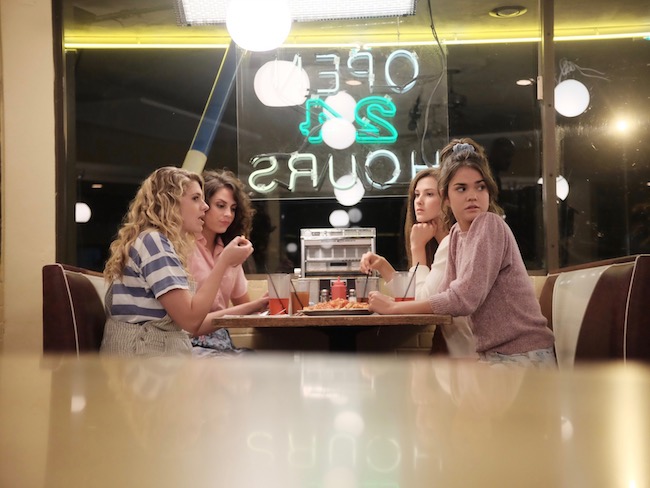
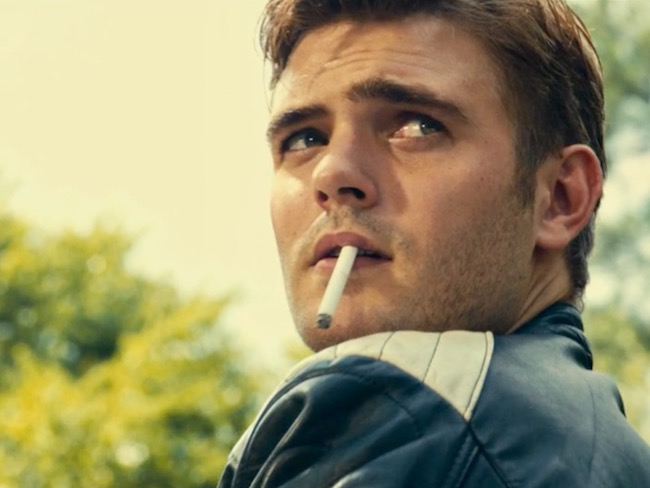
ーーDiscuss the unique framing and narration you use in the movie.
Elijah Bynum: Hot Summer Nights is told through the lens of this random 13 year old boy the narrator in the movie who is watching the older kids in town. And it’s his whole world. There wasn’t Instagram or Twitter in 1991. A kid in his situation wouldn’t take into consideration the fact that 20 minutes down the road there is another town with its own ecosystem and legends. But in that moment Hunter and McKayla Strawberry were everything to this kid. I wanted to try and capture how intoxicating something like that feels. We pushed it to the extreme and gave both characters over the top introductions that’s how I remember feeling when I caught a glimpse of the bad boy when he got out of his car at the football game. It felt like a movie, like James Dean had arrived. Of course when you grow up and look back on it all, you realize how silly it all seemed. Also, since the true story behind the movie came to me through observation and rumor I felt this was the best way for me to pass the story along. I wanted it to feel like stories heard third hand, rumors passed around your high school, sometimes hyperbolic, sometimes illogical, building toward myth. We aren’t sure where the factual accounts end and where the legend begins. Living in that in between space was exciting.
ーーWhat initial steps did you take to start getting your script out into the world?
Elijah Bynum: I was working as an assistant at CAA and I’d written another script, which got optioned and gave me the confidence to know that I could do this professionally. So I quit my job with a few thousand dollars in savings and wrote Hot Summer Nights. It was the second script I’d ever written, and I was 23 years old at the time, which feels like ancient history now. I honestly just wanted to write something I felt would be a fun movie, one that might help me obtain an agent and future writing jobs. The script got passed around town and made the Blacklist, and a writing career came out of it but the script just kind of sat there. People liked the story, but for a number of reasons nobody wanted to make the movie it was R rated, and for a small indie it was on the expensive side, budgetwise. Also, it had a much darker ending originally. I went off and took some assignments as a writer for hire, but I wasn’t very good at rewriting other people’s scripts or pitching comic books and graphic novels. I get more excited creating original stories, trying to see them all the way through.
ーーHow did you decide to direct this movie without having any prior directorial experience?
Elijah Bynum: The filmmakers I most look up to are those who either write and direct or have a very specific vision as a director. And I had a vision of what Hot Summer Nights should look like, because I’d been carrying it around in my head for years. We had gone through the process of attaching music video and commercials directors, anyone who could get it made. And while the people we were meeting with were talented and great, no one came in and laid the movie out like I had done in my head. I got this strange, rather arrogant idea that if I knew exactly how this movie should look and feel why couldn’t I direct it myself? I remember telling my agent and manager this and sensing them cringe over the phone. I was 25 or 26 at the time and hadn’t directed anything; no music videos, no short films, no commercials. Nothing. But I knew I could teach myself the technical aspects of directing and working with actors, and I could hire good people around me and convey to them what movie we were making. It sounds insane now. Having directed this movie and knowing what it takes to get something made, I wouldn’t advise going this route.
ーーHow were you pitching this movie to producers, and how did it ultimately find its way into production?
Elijah Bynum: I’d start talking about certain scenes, like when Hunter Strawberry is first introduced, and maybe describe the piece of music that’s playing on the soundtrack, how the camera moves in on him, like we’re reintroducing James Dean to a 14 year old kid. I emphasized the youthful exuberance and energy and made references to other films. But I didn’t really go around pitching the movie. I went into Imperative Entertainment on a general meeting they had read the script and liked it and I told one of the producers how I would direct the project. By the end of the meeting, they wanted to make the movie and they wanted me to direct it. Nothing has been that easy since, and I don’t expect anything to ever happen that easily or quickly again. But in that moment I had enough confidence to say I wanted to direct, and Imperative sparked to it and they rolled the dice on me.
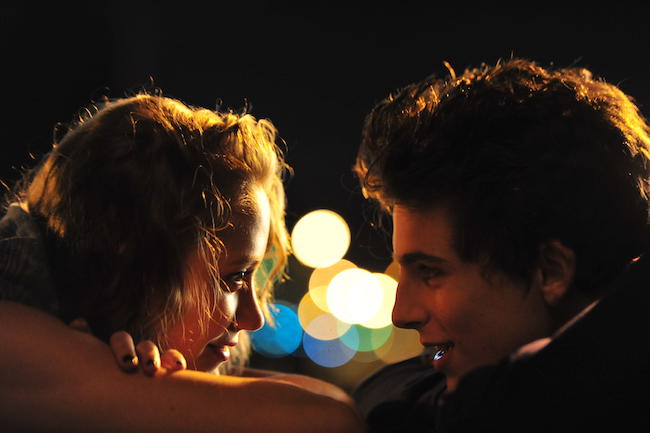
ーーHow did Timothée Chalamet first come to your attention?
Elijah Bynum: I had seen him on Homeland and thought he portrayed a teenager with incredible truth and honesty; there was something about him that was confident and lovably arrogant but at the same time very earnest and sincere. And that was Daniel Middleton in my script. Timothée also had a small part in Interstellar, which I found to be very strong and natural. As the years have gone by, he has become more chiseled and handsome, but at that time there was something very boyish about him that at first glance was even bookish and a little nerdy. In just the right lighting, he becomes handsome. We needed someone who could transform over the course of the film from a boy next door into a drug kingpin; someone the most sought after girl in town is in love with. And it’s not easy to find someone who could play both ends of the spectrum.
ーーDid you look at a bunch of actors for this role?
Elijah Bynum: When I wrote the character of Daniel, it seemed like there would be a thousand kids who could play this role; we needed an old-fashioned boy next door, but finding one ended up being much more difficult than we imagined. We had thought of Timothée very early on and met with him in the earliest stages of production. He came bounding into the meeting in sweatpants with a backpack on and we hit it off immediately this was Daniel, this was our guy. But we went through our due diligence, trying to make the financiers happy, and looked at more established names. I kept in touch with Timothée and told him to hang in there, that we’d come back to him. There were five or six months between our first meeting and when we offered him the role, but he was very passionate about the project from the beginning and I knew he was the one. It was love at first sight.
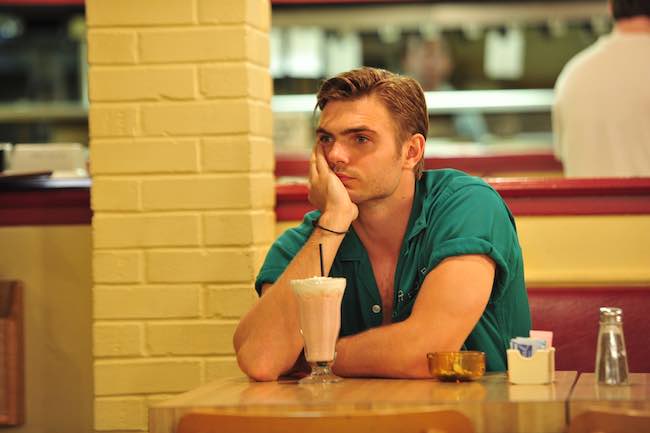
ーーAlex Roe is a real discovery as Hunter Strawberry. How did you find him?
Elijah Bynum: We got really lucky with him; he came out of nowhere. We wanted to find the next Brad Pitt or River Phoenix, but how many of those are out there? We looked at a number of talented actors but finding that balance of classic American masculinity, world-class good looks, charm and charisma proved difficult. Hunter is not some smoldering bad guy, there’s vulnerability there, too. Beneath all the posturing is a human being, which is difficult for an actor because he has to carry the weight of this mythical figure. We looked and looked and couldn’t find anyone. Then Alex Roe came to our attention via a self-tape he submitted. He introduced himself in his thick British accent and immediately switched the dial and became this Eastern Massachusetts townie. Then I met with him. Alex is nothing like Hunter Strawberry in his real life, they couldn’t be more different. But I think that’s what allowed him to attack the character in a certain way he was exploring someone who was far removed from himself in real life. To prepare, he went up to Cape Cod for two weeks before filming, hung out with the locals and somehow found some dealers who were selling weed to tourists, which helped him master the accent. He’s a very committed, focused actor and we were lucky to find him, because the clock was ticking; all the other parts had been cast.
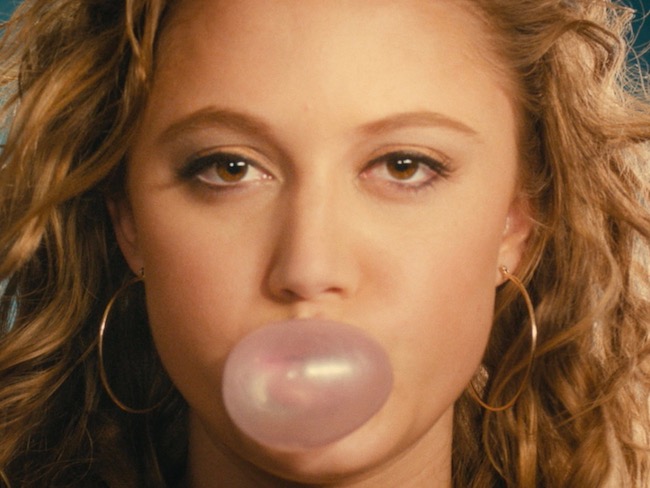
ーーDid you cast Maika Monroe on the basis of her performance in It Follows?
Elijah Bynum: Yes, we were casting right when It Follows came out. She makes it look so easy in that movie, but when you think about what the character is doing, she’s terrified for the entire movie, and that’s hard to sustain without it becom- ing melodramatic or annoying. Maika brought a humanity to it that I felt was much needed for the role of McKayla. We needed someone who would come in and underplay everything. What Maika does really well is undercutting the drama and the emotion. She also looks terri c in close-ups, she photographs very well; she knows how to lean into the camera without it feeling inauthen- tic—that certainly came across in It Follows. She came in and met me and then we did a chemistry read with Timothée. It was exciting for me as a writer to sit back and watch them do scenes I had lived with for a few years.
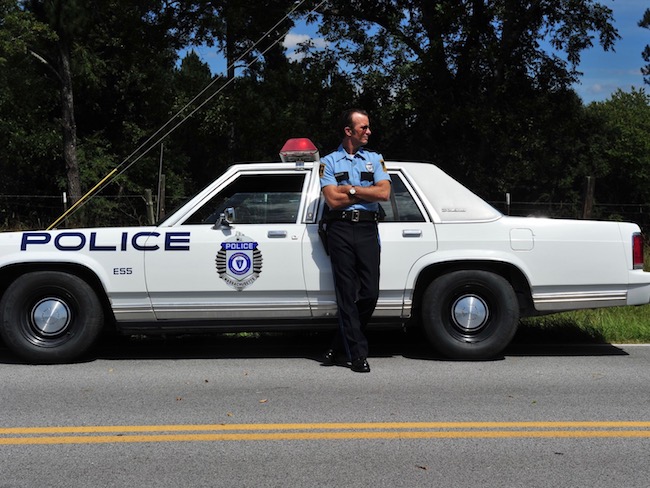
ーーSeveral of the adult performances stand out including Thomas Jane as a poetic cop and William Fichtner as an unhinged coke dealer.
Elijah Bynum: Who doesn’t love Thomas Jane? I’ve been a fan of his for as long as I can remember, but we didn’t think we could get him. We wanted someone who had that strange energy only he can bring, and he agreed to do it. I like to think of his cop character as a frustrated poet who became a small town police officer. He showed up and did an excellent job making sure this character wasn’t too bland or vanilla. At times I had to squint and realize he was doing something different from what I had written in the script, but I had confidence in him to create something that on the page is a very straightforward role. He’s fun to watch in the film.
As for Fichtner, we finished principal photography and shot his scene sometime afterward. We needed someone who could come in and do one day of work. But we all loved William’s body of work; he’s such an intense actor. He has one of those faces that you can’t look away from when he’s on camera. He came in and blew us all away. The scene was originally much longer ten or twelve minutes and I had trouble cutting it down because I loved what he was doing in it. Now it’s closer to six minutes. William was a savior and brought something to the part that I didn’t see on the page, and that’s maybe the most exciting thing you can get from an actor.
ーーThe music in this movie is almost a star unto itself. Talk about your song choices.
Elijah Bynum: Anytime I write a script I put together a song list that I write to, because it helps influence the tone and energy of whatever scene I’m writing. With Hot Summer Nights I had 25 songs I went into the movie hoping to use, but we couldn’t afford a single one of them. Every song in the movie is different from what I thought it would be, but they exist in the same musical space as my original choices. I didn’t just want to pick songs from 1991 it’s too easy to establish time and place by picking Billboard hits from the era, it feels dishonest, like you’re trying too hard to create a specific era. This wasn’t an exercise in nostalgia for a given year or era, it was more about finding this fuzzy distant past or bygone era. How someone might vaguely remember “the past”. Again, I wanted this movie to be about how a story is remembered, not about how it actually played out. We wanted the music to feel like it was coming out of the characters’ emotions, so we chose music that felt emotionally right as opposed to chronologically right.
ーーCan you talk about your approach to weaving songs into your movie, and how you were able to accomplish it so seamlessly?
Elijah Bynum: As far as knowing the right song to pick, I’m not sure where that comes from. When a piece of music starts playing, I immediately see images of what this song could play to, and not necessarily in a cinematic sense. I’ll just start getting images of what scenario a given song might play well with that’s something that has always come naturally to me.
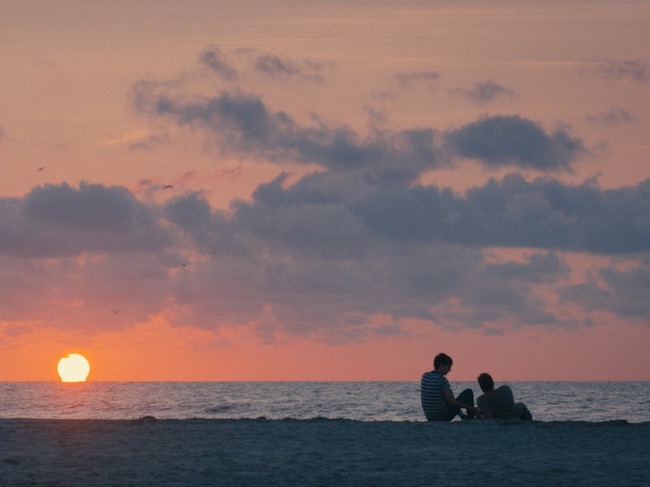
ーーYou shot Hot Summer Nights in Atlanta, as a stand in for Cape Cod. How were you able to make the South look so much like the North east?
Elijah Bynum: I had always planned on shooting on the Cape and remember quite arrogantly proclaiming I wouldn’t make the movie if we couldn’t shoot on location, anyplace else would be sacrilege. But the producers told me that wasn’t going to happen, so I had to figure out a way to make it work somewhere else. I fell in line pretty quickly after that. There isn’t really another place in America that looks like Cape Cod, with its clapboard houses, white shingles, black shutters, manicured lawns, American flags everywhere, driveways made out of crushed seashells, and the unique tree line bordering the ocean. We had the challenge of trying to make modern day Georgia look like 1991 Cape Cod. And it’s not just the architecture that’s different everything from the trees to the way the sky looks at sunrise and sunset are different. During the location scouting process, which took up 90 percent of our pre-production, we were able to find enough little corners that let us fake Cape Cod pretty effectively. It also changed the way I had planned to shoot the film in the sense that I knew we had to come in a lot tighter on our coverage. We weren’t going to have as many establishing or wide shots, because we were constantly trying to hide the fact that we were in Georgia.
ーーWere you able to find the specific locations you wanted in Georgia, like the drive-in movie theater, and the small-town county fair?
Elijah Bynum: The locations were there, but they were harder to find than we thought, especially because we were trying to make it look period in a different region from the film’s setting. Most of the time we were filming an hour and a half to two hours outside of Atlanta Hunter’s gas station was in a small town called Monroe, for example. The arcade proved to be very difficult to find and it wound up being far away. For the beach scene with Hunter and Daniel we had to travel four hours to the coast to shoot the actors sitting next to the ocean. We had 55 locations and we were doing it all on a pretty small budget. If I had to do it over again, I would probably reconsider having as many locations in the film as we did.
ーーHow did you choose Javier Julia to be your cinematographer?
Elijah Bynum: Being a first time director it was very important to find an DP with a ton of experience. A lot of younger cinematographers we looked at have gravitated towards a verité style that is more hand held, using natural lighting and a gritty documentary feel. I was having trouble finding a young cinematographer who had a more classically cinematic approach to framing and lighting a scene I wanted someone who could heighten scenes in an almost sensationalized, impressionistic way while keeping it feeling organic, natural. I saw Wild Talesin a theater, and not only did I think the movie was brilliant, but I thought it was shot incredibly well. I knew Javier had the cinematic eye I was looking for, but he also had a unique point of view on small-town American life because he’s not American. Our main character is an outsider, a fish out of water, so I thought it would be interesting to see the movie through the eye of a cinematographer who views the country through a different lens than we do.
ーーWhat do you want audiences to take away from the movie?
Elijah Bynum: I’m interested in characters who go after something with such focus and vigor because they are determined to prove something to themselves and the world and then when they find what they are looking for, they realize it’s not what they wanted. You get swept up in the current of life, and hopefully you learn to do things differently next time, but you can’t go back and set things right in the past. There’s something haunting about that, in novels I’ve read and movies I’ve seen, but also in real life experiences of my own that aching, gnawing, yearning feeling of wanting to do things differently and not being able to, and ultimately having to accept that this is how the world works. I think that’s what it means to grow up.
イライジャ・バイナム監督『HOT SUMMER NIGHTS/ホット・サマー・ナイツ』インタビュー/Interview with writer-director Elijah Bynum about “Hot Summer Nights”
1 2
